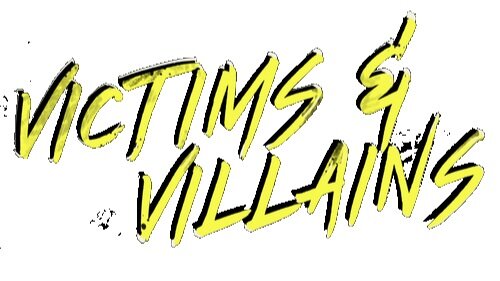It seems like violence has been embedded into our culture since the beginning of time. Well, Cain and Able are the closest we get to the beginning of time. However, there was a shift in cultural violence throughout the 1960s and 1970s. With the ushering of individuals like Jim Jones and Charles Manson. Manson is currently having a lot of publicly around his crimes and his infamous cult dubbed “The Family”. This year will deliver three films focusing on his crimes, his rise and the murders his cult was responsible for. Two of the three are independent in The Haunting of Sharon Tate, starring Hillary Duff of Lizzie McGuire fame, and Charlie Says… which stars former Doctor Who actor, Matt Smith in the role of Manson. The final film on that list is from writer-director superstar, Quentin Tarantino.
Though his latest film, Once Upon a Time in…Hollywood, isn’t actually a Manson or Family biopic – rather the famous cult is used as a plot device. Hollywood tells the story of Rick Dalton, played by Leonardo DiCaprio, and his stunt double, Cliff Booth, played by Brad Pitt. Dalton is attempting to recapture his days of fame and glory. As the leads of the movie, DiCaprio & Pitt, seriously shine in their respective roles with tremendous chemistry. Though, we journey together with both characters, they each have very respectively different journeys throughout the duration of the movie. DiCaprio is always doing one of three things: being depressed, drinking or trying to regain his reign within Tinseltown. Unfortunately, the cycle of depression and drinking make for little development for the character.
Pitt, on the other hand, feels the most three dimensional of the large cast. His character is given the most development and what could even be argued, the most screen time of the movie. Providing charm and wit in the role of a stuntman. Pitt gives some of the most memorable sequences in Hollywood. Whether he’s fighting Bruce Lee, exploring the ranch of “The Family”, or stealing the climax of the film – Pitt alone is worth the price of admission. His chemistry and selfless journey with DiCaprio only sweeten the deal.
Tarantino does a really good job at solidifying the culture of Hollywood in 1969. The film feels like a time machine. The sets, characters, dialogue, and costumes make for a superb trip back to the flower power generation. Though, that maybe some of Tarantino’s finest contribution to this film. Aside from his famous dialogue and quips, the film feels unnecessarily oversexualized. What’s worse is the use of both Sharon Tate, played by Margot Robbie, Charles Manson and the family. For one thing, Robbie has little to no dialogue in the movie. Not to mention adds little to nothing for the film’s plot. To say that Robbie is vastly underutilized would be a massive understatement. Then you have the element of the Manson cult. By the climax of the movie, which features the cult, viewers are expected to know why we should fear them. For me, personally, that wasn’t an issue. I know an oddly large amount about their crimes. For the casual moviegoer, this maybe a big issue. For the antagonists of this nearly three-hour epic, there is little in the wake of actual build up for them. They are mainly white noise throughout the first act. Only have but one scene in the second act. There is little in the wake of why we should fear them here.
Overall, Once Upon a Time in…Hollywood, walks the line between beauty and ugliness closely. The film is led brilliantly by Brad Pitt and Leonardo DiCaprio. Though, it offers little in the wake of actual development for any of the characters that aren’t Pitt. Hollywood unfortunately oversexualizes its’ female component and underutilizes one of its’ strongest actresses in Margot Robbie’s Sharon Tate. Tate feels two-dimensional – as does “The Family” and Charles Manson plots within the film. There is little to no development for the antagonist element. Hollywood is great at capturing the culture and has a ton of character moments. Though, this one is shaken but definitely not stirred well.
RORSCHACH RATING SCALE:
And more importantly, if you or someone you know is struggling with suicide, addiction, self-harm or depression - please free feel to reach out. Use any our resources, call the suicide lifeline (1-800-273-8255) or text 741-741.
Credits: Music by Beggars. Once Upon A Time in Hollywood is property of Columbia Pictures. We do not own nor claim any rights.



